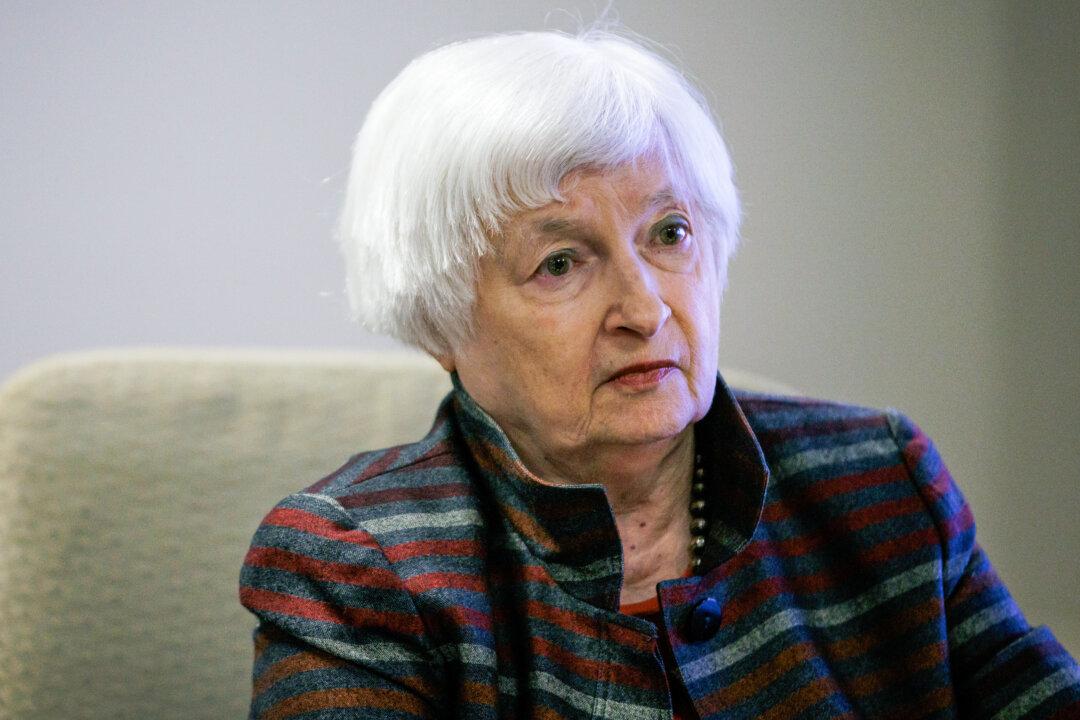Treasury Secretary Janet Yellen shrugged off the latest hotter-than-expected U.S. inflation data, arguing that the financial markets made the “mistake” of concentrating on short-term blips rather than the downward trend of the consumer price index (CPI).
At the Detroit Economic Club alongside Gov. Gretchen Whitmer (D-Mich.), Ms. Yellen stated that the January CPI report was a “tad higher” than observers expected, resulting in a sharp stock market sell-off.





